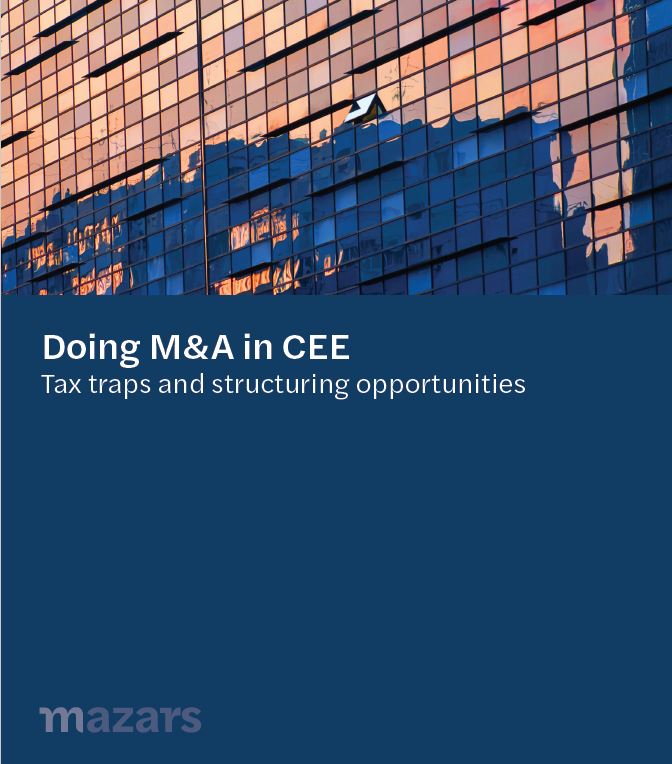
Against a backdrop of global competition and integrated markets, many businesses around the world are seeking growth opportunities outside their country of origin despite shifting, and at times complex, regulatory environments.Pursuing transactions in Central and Eastern Europe (CEE) can present attractive prospects to investors, but it’s important to understand that the acquisition and integration processes still respond to local specificities – even when the country in question is part of the European Union.
That is why Mazars have published this study: to shed light on merger and acquisition tax risks and opportunities in CEE. The insight provided is based on our experts’ experiences conducting due diligence tax structuring in the region and covers the tax risks they frequently encounter that threaten the success of the deal-making and subsequent integration processes in these fast-growing markets.
Mazars takes a broad approach to the CEE region and have included insight on the following EU and non-EU countries: Albania, Austria, Bulgaria, Croatia, Czech Republic, Hungary, Poland, Romania, Russia, Serbia, Slovakia, Slovenia and Ukraine. You will see that in their definition, they have included Austria as it is a strategically important country for CEE.
What they uncover is how the main ‘tax traps’ that appear in due diligence processes are related to thin capitalisation rules and the use of tax losses. However, these same transactions can also benefit from local tax incentives that support investments and exist alongside tax exemptions applicable to mergers and demergers.
Mazars’ expert guidance to navigate tax traps, incentives and exemptions revolves around a business enlarging its due diligence scope and conducting work on the ground in partnership with local advisors.
Details can be found here. Click to DOWNLOAD THE REPORT
